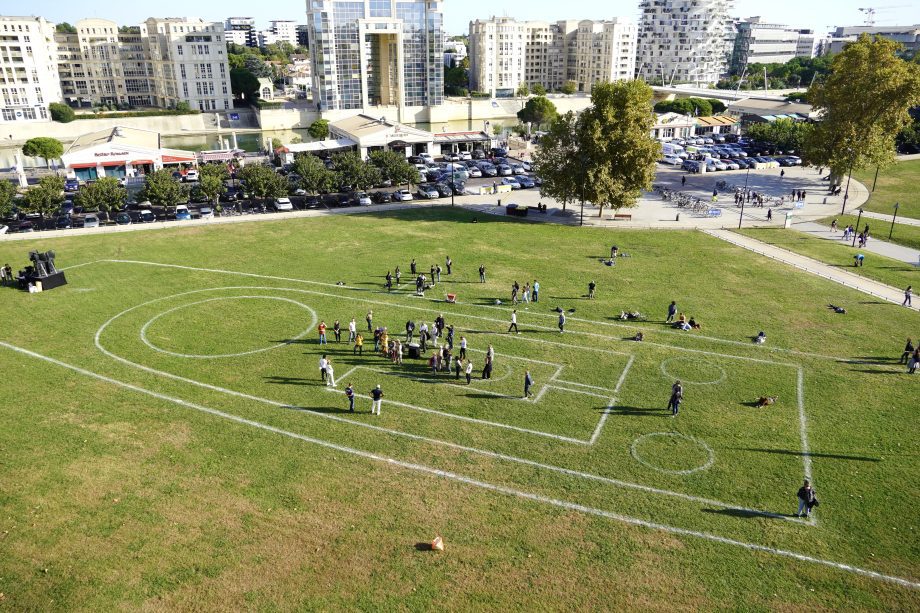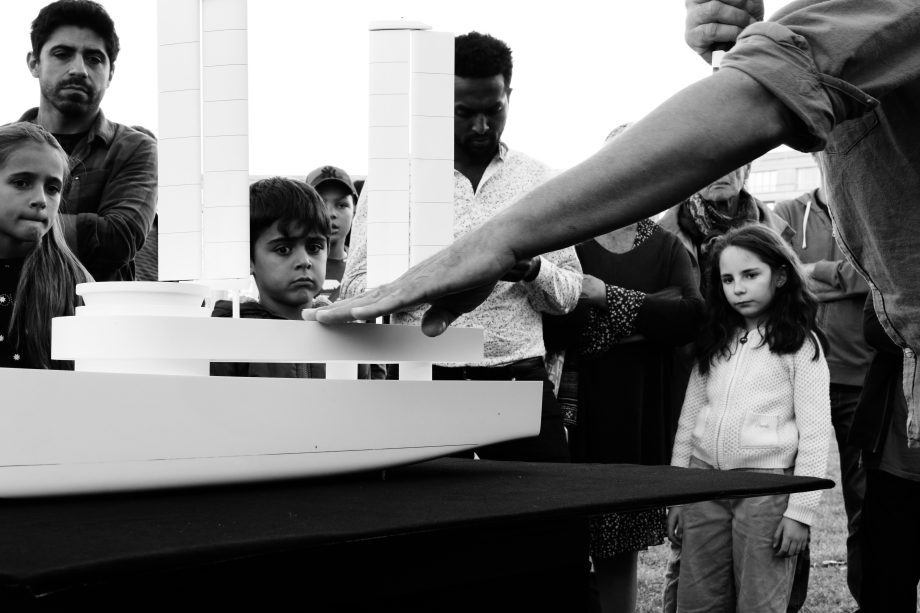PEROU
Navire Avenir
France · Architecture

Political scientist, educator, and author, Sébastien Thiéry works at the intersection of art and activism. With PEROU and SOS Mediterranée, Navire Avenir’ (Ship of the Future) is being the first vessel specifically conceived for ‘mass rescue’ on the Mediterranean Sea, has been designed in collaboration with rescue workers, survivors, caregivers, artists, and architects.
A project of PEROU, ‘Navire Avenir’ is a pioneering 69-meter catamaran, designed by a group of 500 designers, rescue workers, survivors, caregivers, artists, architects and students from Europe and South America. Its aim is to equip those involved in rescue operations on the high seas, and amplify the impact of their actions. The vessel’s design has evolved through residencies in museums, theaters, choreographic centers, and art centers in France and Italy since 2020.

Sébastien Thiéry (Istres, 1975) is a political scientist, author, and educator who also serves as a member of the editorial board of the magazine ‘Multitudes’. He initially embarked on his teaching career in the domains of public law and political science at the Université Paris I Panthéon-Sorbonne. Subsequently, his research and pedagogical pursuits led him to the dynamic intersection of contemporary art and activism, within schools of art, architecture, and the School of Political Arts established by Bruno Latour at Sciences Po Paris.
Notably, he played an active role in the Les Enfants de Don Quichotte movement in 2006, demonstrating his commitment to addressing homelessness and housing issues. In 2012, he co-founded the PEROU, a hub for the exploration of urban resources, alongside landscape architect Gilles Clément. PEROU is dedicated to conducting action-research aimed at addressing urgent needs related to migration and the creation of new practices of hospitality, particularly in shanty towns on the outskirts of Paris, refugee camps such as the ‘Calais camp’ at the border between France and the UK.
Sébastien Thiéry regularly collaborates with various collectives in the Mediterranean region with the objective of acknowledging and preserving these acts of hospitality as part of the Intangible Cultural Heritage of Humanity.

